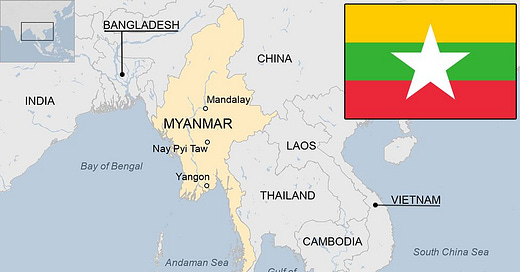Myanmar, formerly known as Burma, is a country where Buddhism is not just a religion but a central aspect of the nation’s culture, identity, and way of life. With over 90% of the population identifying as Buddhists, the practice and teachings of the Buddha permeate nearly every facet of life in Myanmar. But how has this deeply rooted tradition evolved, especially in modern times when the country is experiencing significant political and social challenges?
The Origins and Development of Buddhism in Myanmar
Buddhism has been the dominant religion in Myanmar for over a thousand years. Introduced to the region in the 11th century through interactions with Indian and Sri Lankan monks, the Theravada tradition of Buddhism became established during the Pagan Kingdom under King Anawrahta. King Anawrahta’s embrace of Theravada Buddhism was a pivotal moment in Myanmar’s history. He not only adopted the teachings of the Buddha but also encouraged the spread of Buddhist monasteries, scriptures, and teachings across the kingdom.
Over time, Buddhism became an integral part of Myanmar’s social fabric, and the religious practice became closely linked with the country’s political structure. This relationship was further solidified by the Buddhist sangha (monastic community), which played a significant role in both religious and national matters.
Theravada Buddhism: The Heart of Myanmar’s Spirituality
Theravada Buddhism, the “Teaching of the Elders,” is the predominant form of Buddhism practiced in Myanmar. It emphasizes the Pali canon as the most authoritative scripture and focuses on the teachings of the historical Buddha. The path of the Buddha is followed through the practice of ethics (sīla), meditation (samādhi), and wisdom (paññā), culminating in the realization of Nirvana.
Myanmar is renowned for its strong monastic tradition. The sangha not only serves as a place of spiritual guidance but also holds a central role in the social and political realms of Myanmar. Monks are revered in society, and it is common to see them engaged in various aspects of community life, from leading religious ceremonies to providing education and healthcare services in rural areas.
Keep reading with a 7-day free trial
Subscribe to The Gentle Law to keep reading this post and get 7 days of free access to the full post archives.





